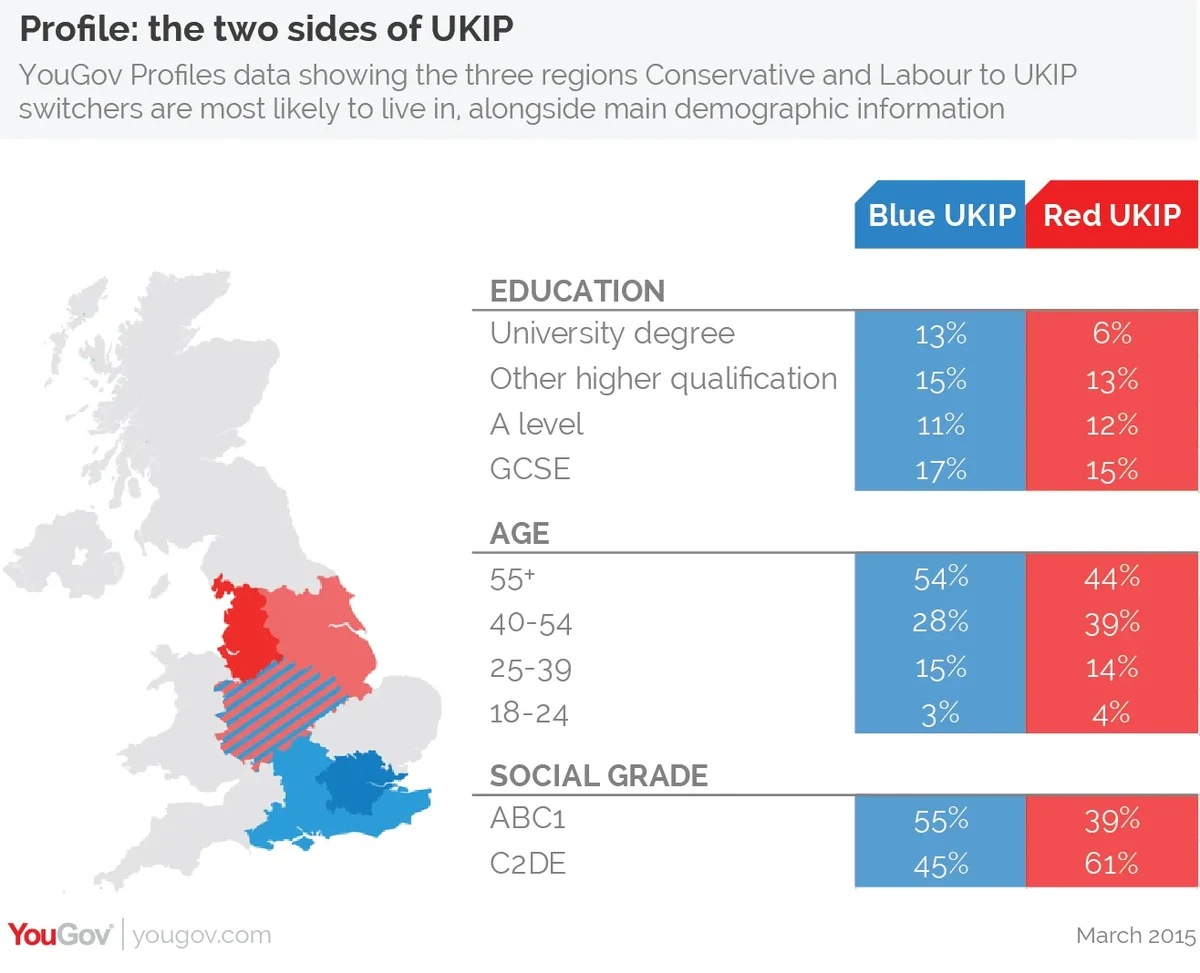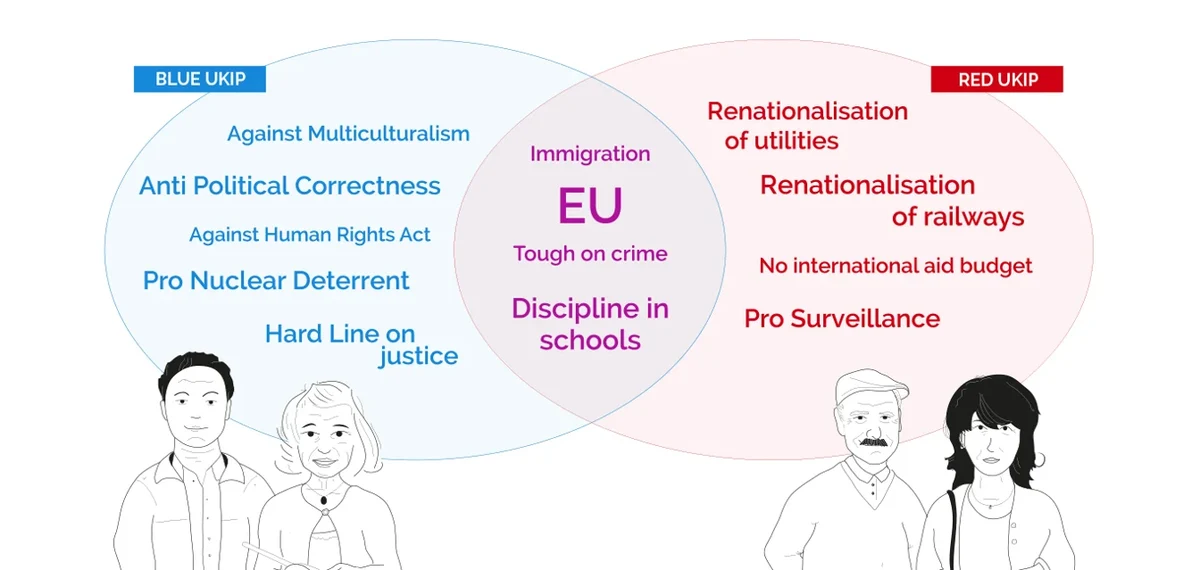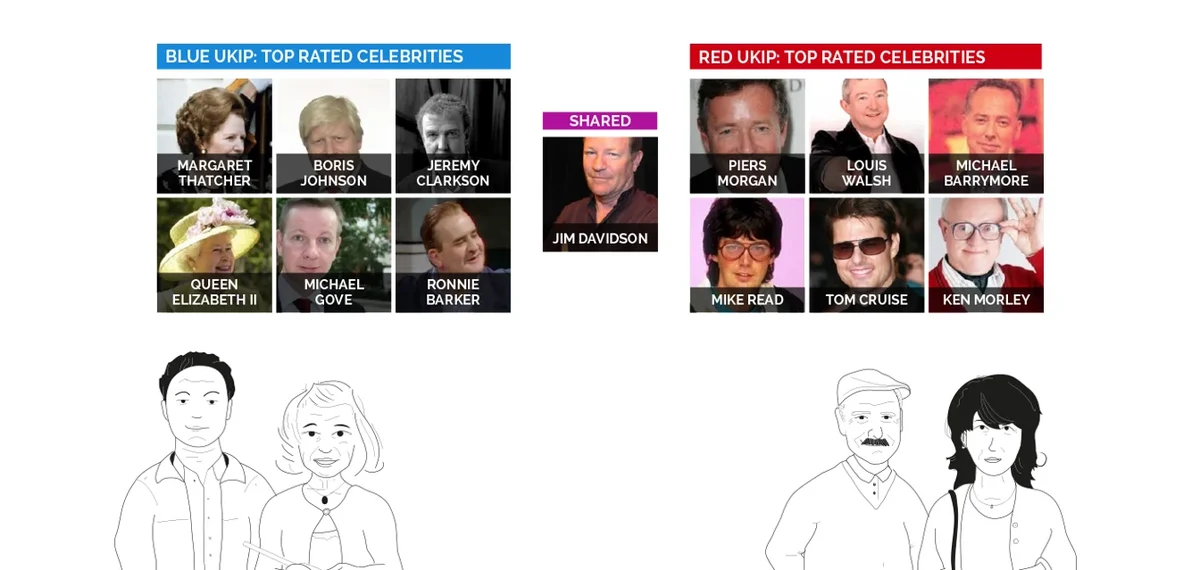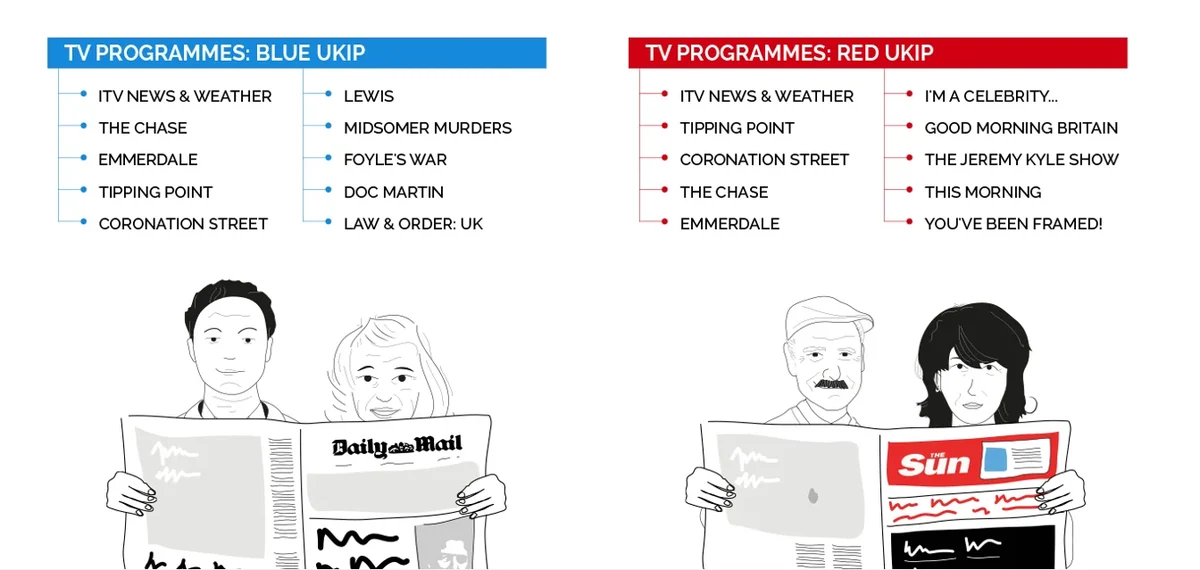New data from YouGov Profiles reveals the very different characteristics of UKIP voters with a Tory or Labour past
Although UKIP voters are more likely to be prior Conservatives, there are a significant number who have also switched from Labour. This much we already know, but new YouGov Profiles data reveals how different the two sides of UKIP really are – from their demographic background all the way down to the issues they feel strongly about and their TV viewing preferences.
Formerly Conservative voters (Blue UKIP) are most likely to reside in London (20%), the Midlands (17%) or the South (14%). 19% of previously Labour voters (Red UKIP) are also from the Midlands, but their next most likely residence is in Lancashire (16%) and Yorkshire (13%). Red UKIP are half as likely to have a university degree and are 16% more likely to be from a working class, C2DE social background.

They share a concern for core UKIP issues – immigration, the EU, crime – but Red Ukippers have strong support for nationalising railways and utilities, while Blue Ukippers are more likely to oppose political correctness and think multiculturalism has had a negative impact.

In terms of top scoring celebrities, Jim Davidson has strong appeal from both factions. Beyond that, the public faces most particular to Blue Ukippers are mainly from a political background (Margaret Thatcher notably scores highest) while entertainment celebrities like Piers Morgan and Louis Walsh may have a bigger pull for Red UKIP voters.

The pronounced taste for entertainment among Red UKIP voters carries over to the TV programmes they've recently watched that could carry adverstising. Programmes like I'm a Celebrity and Jeremy Kyle are particularly favoured by ex-Labour voters, however none of these feature in the Blue UKIP list. For former Tories, drama and crime programmes are more watched.

In the run up to the election, YouGov will be applying Profiles to every constituency in Britain. Users will be able to see detailed information on the quintessential resident of each locality, but they will also be able to see how each area divides on the big issues, compared to the region and Britain as a whole.







